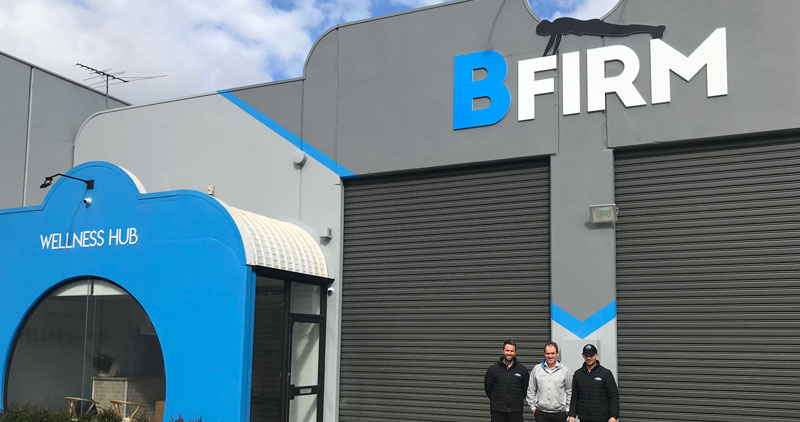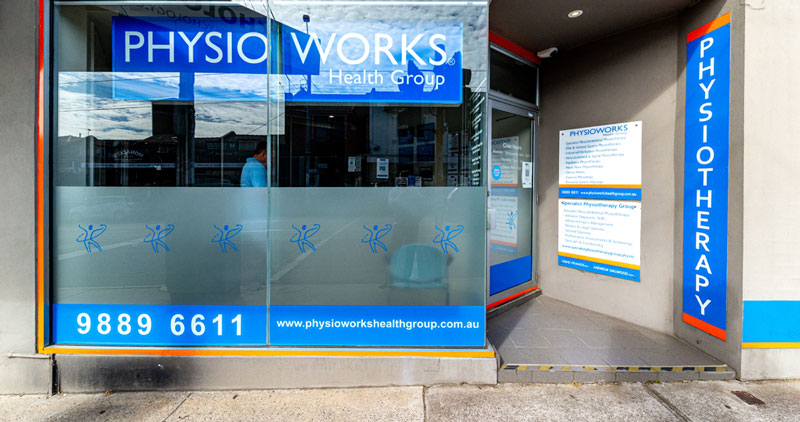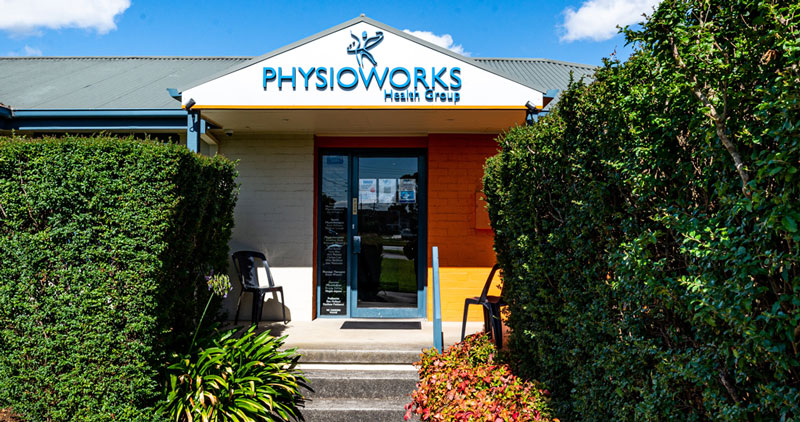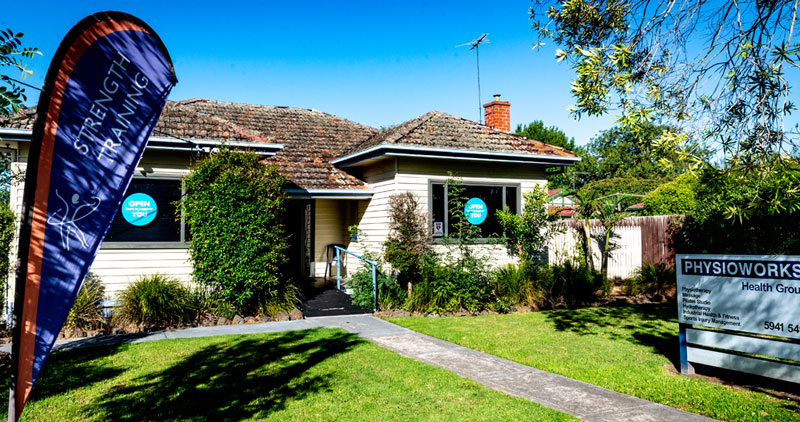Numerous cases present at Physioworks Health Group for the treatment of tendon injuries.
Tendons can be a constant cause of pain as they are very sensitive to change in exercise (load), stretch and lifestyle factors. Tendon pain includes terms such as “tendinopathy”, “tendonitis”, “calcified tendons” and can even be a contributing factor to “bursitis”.
The Physioworks team often see tendon pain in young athletes around the knee (Osgood-Schlatter’s) or around the heel (Sever’s), which can be caused by high levels of activity coupled with periods of rapid growth.
In older athletes we tend to see knee and achilles pain, with the addition of tendon pain, commonly in the gluteal tendons (around the hip), the elbow (tennis or golfer’s elbows) and in the rotator cuff (shoulder).
There has been much research into tendon pain, causes and treatment in the past decade; and much discussion on what is the best approach to treating tendon pain.

What causes tendon pain?
Often, tendon pain coincides with a recent increase in load. Some people talk about having recently joined a gym, doing more walking or lifting, changing jobs or even just a heavy day of activity. Tendons are not particularly good at making adaptions to increases in load, so they make changes which cause them to appear thickened and eventually they become painful.
An acute incident such as a heavy lift, an overstretch (such as pushing off to jump or sprint) or a fall can cause damage to a tendon, which results in pain.
Depending on the injury or mechanism, the best treatment may look very different.
What treatments have been proposed?
The role that tendons play in our bodies are different depending on which part of the body they are in; such as whether they are located in the arms or legs.
For those of you that have experienced tendon pain, you may have been offered a number of treatments or approaches. This may include, but is not limited, to:
- PrP injection
- Cortisone injections
- Anti-inflammatories
- Shockwave therapy
- Acupuncture
- Dry Needling
- Stretching
- Exercises (eccentric or isometric)
- Load Management
- Massage
With so many potential treatment options it can be very confusing to know what will help fix your tendon pain, therefore individual assessment is critical for best treatment outcomes.
What is important to know?
First things first – at Physioworks Health Group we firmly believe there is no “one size fits all” approach to tendon pain.
Factors that may affect your recovery and treatment include; age, activity type (ie: marathon runner vs long jumper vs office worker), the type of tendon involved, degree of injury and previous injury. So one person’s fix may not work for someone else.
Secondly, tendons are slow to improve and slow to adapt. If you have recently sustained a tendon injury, realistic recovery will take around 12 weeks (with good management) for minor injuries; and up to 12 months for more severe injuries, such as ruptures (which may require surgery).
Tendons may not always be the source of pain but are frequently a contributing factor. If you have been told that you have “bursitis” (particularly in your hip or shoulder) – these can be common tendon-based injuries.
The presence of a tear does not always mean that it will cause you pain, or that you will need surgery. Tears can occur slowly over time; and often cause no issues until a flare up due to an injury or change in activity. In some cases, such as; an acute tendon injury, a complete tendon rupture or persistent tendon pain which has not responded to other forms of management, surgery may be an option, but it is rarely the first point of call.
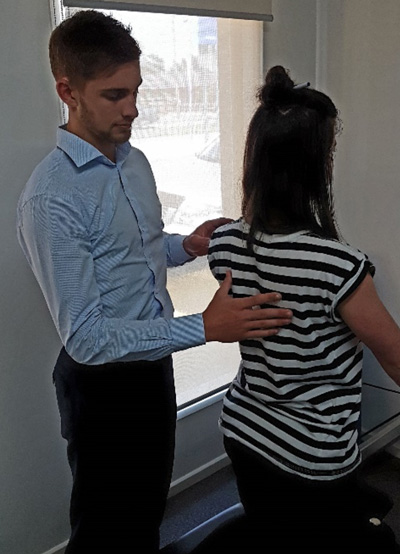
What should I do for Tendon Pain?
- Have a physiotherapist assess your injury, as it is very important in achieving the best long-term result. This assessment should be within a short period of having developed pain, as in most cases having a plan in place quickly can reduce the recovery time significantly.
- Be patient. Remember that tendons can be slow to recover. Set expectations – it maybe slower than you would like – there is no magic pill. A gradual exercise program could be the best way to increase the likelihood that your injury will not reoccur.
- Research tells us that injection therapy – although sometimes effective – should not be your first point of call. Strength training will almost always be more helpful for tendon injuries.
If you think you are experiencing tendon pain, book an appointment with Physiotherapist Jordan Rutherford (WPPC – Physioworks Mulgrave) or one of physiotherapy team at your preferred Physioworks clinic to have your tendon injury assessed to ensure a personalised treatment plan is activated for you.


